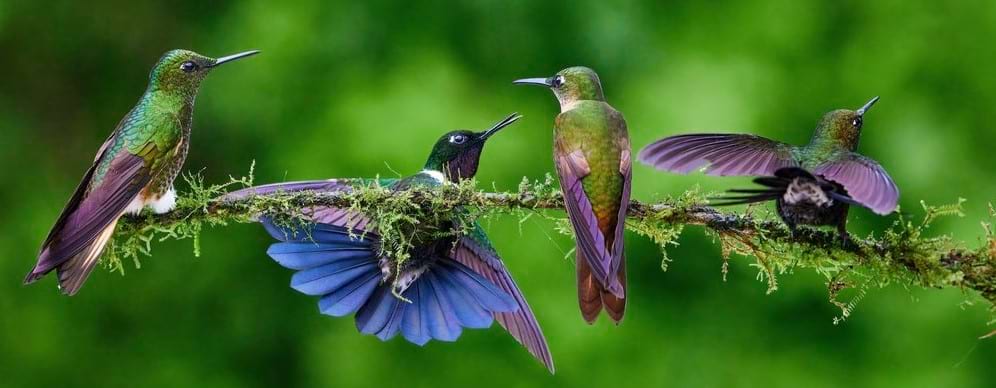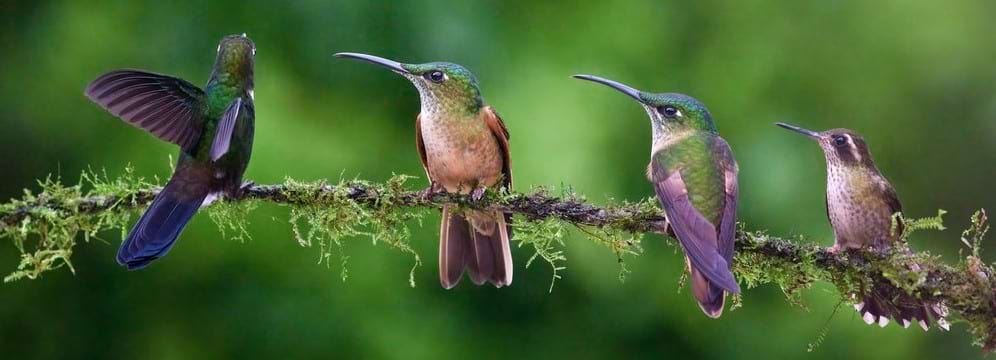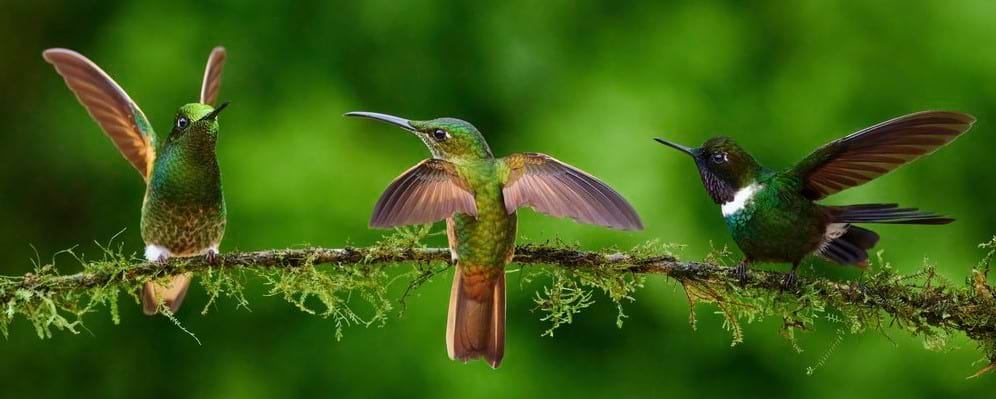IPBES seeking experts, fellows, reviewers, hosts for technical support units, and inputs on policy support

Last updated 20 December 2023
Following decisions by the tenth session of the Plenary, IPBES is seeking nominations of experts and fellows for several components of the work programme, as well as hosts for a number of technical support units. Furthermore, IPBES will be seeking input on the policy support function, including policy tools and methodologies, as well as external reviewers for two ongoing assessments.
Calls for nominations of experts
Scoping experts: Second global assessment
The second global assessment will be broadly similar in scope to the first global assessment while building on it to avoid repetition or unnecessary duplication.
Nominated experts should have expertise relevant to a global assessment of biodiversity and ecosystem services in one or more disciplines within natural science, social science or humanities. IPBES is, in particular, seeking experts with an interdisciplinary background with experience working at various scales (e.g., global, regional, subregional, national, and ecosystem-level scales). Governments and organizations nominating experts are therefore encouraged to promote this multidisciplinary approach, which is fundamental to the success of IPBES. IPBES is also looking for experts on Indigenous and local knowledge, for policy experts and for practitioners in a relevant field. Governments and relevant stakeholders are invited to ensure gender balance in their nominations.
Extended deadline for nominees: 19 November 2023. Extended deadline for nominators: before 26 November 2023. Early nominations ahead of this deadline are encouraged.
>> See notification EM/2023/35
>> See notification EM/2023/50
Expert authors: Monitoring assessment
The IPBES Plenary, in decision IPBES/10/1, approved the undertaking of the methodological assessment on monitoring biodiversity and nature’s contributions to people (“monitoring assessment”).
IPBES is seeking experts and practitioners from academia, government, and civil society with expertise in:
- A range of disciplines, including but not limited to, ecology, evolution, social science, economics, statistics and biodiversity modelling;
- Monitoring biodiversity and nature’s contributions to people in terrestrial, freshwater, and marine ecosystems;
- The use of in-situ and remote sensing measurements, community-based monitoring and citizen science;
- Diverse and new technologies for estimating and monitoring biodiversity, such as environmental DNA, ecological acoustics, camera-traps, hyperspectral imagery and artificial intelligence;
- National and subnational monitoring programmes and systems (including those led by Indigenous Peoples and local communities), global observing systems, and citizen science initiatives;
- Indicators and the use of indicators in policy and decision-making;
- Institutional and financial requirements to strengthen monitoring systems.
Governments and relevant stakeholders are invited to ensure gender balance in their nominations.
Extended deadline for nominees: 9 January 2024. Extended deadline for nominators: 19 January 2024. Early nominations ahead of this deadline are encouraged.
>> See notification EM/2023/36
>> See notification EM/2023/58
Experts for IPBES Task Forces
Following the successful conclusion of IPBES 10 and in line with decision IPBES/10/1 on the IPBES Rolling Work Programme up to 2030, Governments and other relevant stakeholders are invited to nominate candidates for the following task forces. The term of office of the task force experts will end at IPBES 13 (tentatively scheduled for 2026):
- A task force on capacity-building (see here for more information);
- A task force on data and knowledge management (see here for more information);
- A task force on Indigenous and local knowledge (see here for more information);
- A task force on scenarios and models (see here for more information).
Nominated experts should have expertise specific to the task force to which they are being nominated – for example in the disciplines of natural science, social science, the humanities, or Indigenous and local knowledge systems. Nominated experts may be academics, policy experts and/or practitioners who come from qualified national, regional and international scientific organizations, centres of excellence and institutions. All nominees should have experience in working in interdisciplinary and/or global contexts. Governments and relevant stakeholders are invited to ensure gender balance in their nominations.
Extended deadline for nominees: 19 November 2023. Extended deadline for nominators: before 26 November 2023. Early nominations ahead of this deadline are encouraged.
>> See notification EM/2023/37
>> See notification EM/2023/51

Calls for nominations of fellows
The IPBES fellowship programme provides an opportunity for outstanding early-career individuals from all backgrounds and disciplines working on biodiversity and ecosystem services to participate in IPBES assessments. The fellows gain first-hand experience in participating in major multidisciplinary scientific assessments while working with, and being mentored by, leading experts. The programme is an integral part of IPBES work on capacity-building, and aims at developing the capacities of fellows in undertaking assessments, thus creating a pool of experts suited for contributing to future assessments and promoting the work of IPBES in their home countries and institutions.
Fellows for the Monitoring assessment
The IPBES Plenary, in decision IPBES/10/1, approved the undertaking of the methodological assessment on monitoring biodiversity and nature’s contributions to people (“monitoring assessment”).
IPBES is seeking fellows from academia, government, and civil society with expertise in:
- A range of disciplines, including but not limited to, ecology, evolution, social science, economics, statistics and biodiversity modelling;
- Monitoring biodiversity and nature’s contributions to people in terrestrial, freshwater, and marine ecosystems;
- The use of in-situ and remote sensing measurements, community-based monitoring and citizen science;
- Diverse and new technologies for estimating and monitoring biodiversity, such as environmental DNA, ecological acoustics, camera-traps, hyperspectral imagery and artificial intelligence;
- National and subnational monitoring programmes and systems (including those led by Indigenous Peoples and local communities), global observing systems, and citizen science initiatives;
- Indicators and the use of indicators in policy and decision-making;
- Institutional and financial requirements to strengthen monitoring systems.
Extended deadline for nominees: 9 January 2024. Extended deadline for nominators: 19 January 2024. Early nominations ahead of this deadline are encouraged.
>> See notification EM/2023/38
>> See notification EM/2023/58
Fellows for the IPBES task force on scenarios and models
Nominated candidates should have expertise specific to the task force on scenarios and models, for example, in the disciplines of natural science, social science, the humanities, or Indigenous and local knowledge systems. Nominated candidates may be academics, policy experts and/or practitioners who come from qualified national, regional and international scientific organizations, centres of excellence and institutions. All nominees should have experience in working in interdisciplinary and/or global contexts. Governments and relevant stakeholders are invited to ensure gender balance in their nominations.
For the task force on scenarios and models, nominees should have expertise in qualitative and quantitative approaches to scenarios, models and other futures studies, including in discussing and testing the Nature Futures Framework, and should be able to effectively promote dialogue between the task force and the communities of practice on scenarios and models.
Extended deadline for nominees: 9 January 2024. Extended deadline for nominators: 19 January 2023. Early nominations ahead of this deadline are encouraged.
>> See notification EM/2023/39
>> See notification EM/2023/58

Calls for offers to host a technical support unit (TSU)
As stated in the rolling work programme up to 2030 of IPBES, technical support for the implementation of the work programme is provided by the secretariat and, for some of the objectives, complemented by a technical support unit, as appropriate. The secretariat issues open calls for expressions of interest in providing technical support, including in-kind support from Governments and other stakeholders, for the establishment of these units. The most suitable institutions will be selected by the Bureau and will work under the authority of the Executive Secretary (see annex I to decision IPBES-7/1).
TSUs for the IPBES task forces
The Plenary, at its tenth session, held from 28 August to 2 September 2023, approved the revised terms of reference of the task forces on capacity-building; on knowledge and data management; on Indigenous and local knowledge; and on scenarios and models of biodiversity and ecosystem services, and requested the task forces to implement their respective workplans approved in decision IPBES/10/1.
Governments and relevant organizations are invited to submit to the secretariat their offers to host the technical support units for the IPBES task forces, including:
- TSU for the task force on capacity-building (see here for more information);
- TSU for the task force on data and knowledge management (see here for more information);
- TSU for the task force on Indigenous and local knowledge (see here for more information);
- TSU for the task force on scenarios and models (see here for more information).
Extended deadline for offers: 31 October 2023 CEST.
>> See notification EM/2023/31
>> See notification EM/2023/43
TSU for the IPBES monitoring assessment
The Plenary, at its tenth session, held from 28 August to 2 September 2023, approved the undertaking, for consideration by the Plenary at IPBES 13 (decision IPBES/10/1), of a methodological assessment on monitoring biodiversity and nature’s contributions to people (“monitoring assessment”).
Governments and relevant organizations are invited to submit to the secretariat their offers to host the technical support unit for the monitoring assessment.
Extended deadline for offers: 5 November 2023 CEST.
>> See notification EM/2023/32
>> See notification EM/2023/45

Call for inputs: the policy support function, and policy tools and methodologies
In accordance with decision IPBES/10/1, IPBES inviting Governments, organizations and individuals to submit their views on the future role of the policy support function of IPBES and ways to strengthen the implementation of objective 4 (a) on policy tools and methodologies.
Inputs will be used to develop a draft concept note which sets out the future work that could be undertaken to implement objective 4(a), and options for any necessary institutional arrangements.
Deadline for submissions: preferentially by end of November 2023, but not later than 6 January 2024.
>> See notification EM/2023/44
Save the date for external reviews: Nexus assessment and Transformative change assessment
- The second draft of the chapters and the first draft of the summary for policymakers of the thematic assessment of the interlinkages among biodiversity, water, food and health (nexus assessment) will be open for external review from 20 November 2023 to 14 January 2024 (8 weeks).
- The second draft of the chapters and the first draft of the summary for policymakers of the thematic assessment of the underlying causes of biodiversity loss, determinants of transformative change and options for achieving the 2050 vision for biodiversity (transformative change assessment) will be open for external review from 4 December 2023 to 28 January 2024 (8 weeks).
This second external review is addressed to Governments and interested and qualified experts, including scientists, decision makers, practitioners and other knowledge holders. To ensure the highest scientific quality and policy relevance of the assessment, the Multidisciplinary Expert Panel is seeking peer review from the widest-possible participation of experts from all relevant disciplines and backgrounds. To ensure consistency with and continuity from the first external review, those who participated in the first review are particularly invited to send comments.
If you'd like to be notified directly when the reviewing process opens, make sure that you're signed up with the IPBES Stakeholder Registry. To log in and sign up, you may first need to create a user account on the IPBES website.
>> See notification EM/2023/34
For an overview of important dates and links for ongoing calls at IPBES, see the IPBES website.
Photographs by Zdeněk Macháček on Unsplash: hummingbirds in Chocó Andino de Pichincha Biosphere Reserve, Ecuador.
